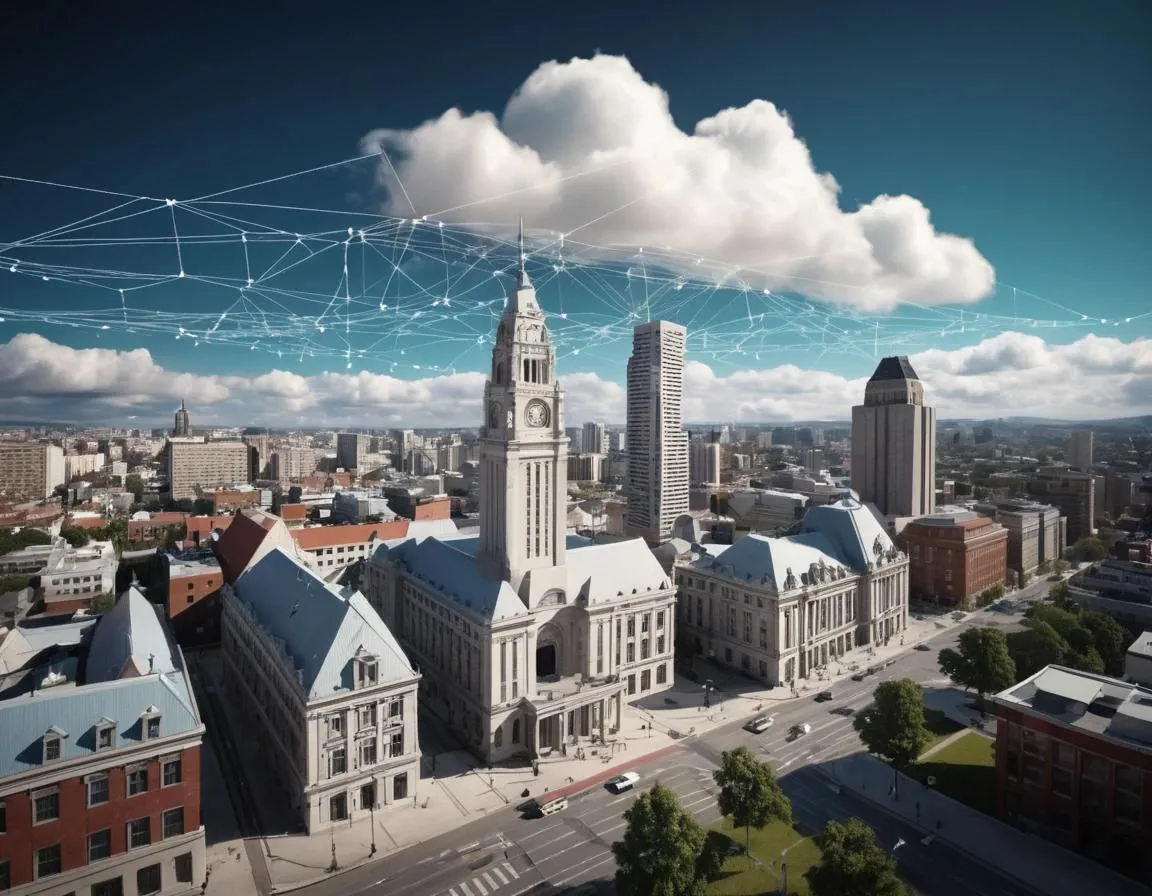
White Hat Service Group
White Hat Service Group


Municipalities
We provide technology services for local governments, and municipalities, ensuring they operate smoothly and securely. From managing government data to streamlining city operations, our services help these organizations deliver better services to the public.


Cloud-based collaboration tools
Data security and compliance (FERPA, HIPAA)
Secure communications and emergency response systems
IT support and network management

We assist with managing cloud infrastructure, cybersecurity, data backup, and communication systems for schools and cities, ensuring compliance with regulations and improved operational efficiency.

As municipalities continue to embrace smart city initiatives and modernize their IT infrastructure, they face several technological challenges. Managed Service Providers (MSPs) can play a key role in helping cities tackle these issues, from data security to system integration, and from staffing shortages to citizen engagement. By providing scalable, cost-effective, and secure solutions, MSPs ensure that municipalities can navigate the complexities of modern technology while enhancing public services and improving quality of life.
Data Security and Privacy
Increasing risk of data breaches
Compliance with data privacy laws
City municipalities are increasingly leveraging data-driven technologies, including sensors and surveillance systems, to improve urban planning and services. However, this creates a large volume of sensitive data that needs to be protected. An MSP can offer encryption, network monitoring, and threat detection services to ensure this data is secure, and also provide guidance on how to comply with data privacy regulations such as GDPR.
Interoperability of Systems
Difficulty integrating old and new systems
Lack of standardized technology platforms
Municipalities often face difficulties in connecting their legacy IT systems with the latest technology solutions. For example, older traffic control systems may not easily integrate with IoT-based solutions like adaptive traffic signals. An MSP can assist in bridging the gap by implementing middleware solutions that allow legacy systems to communicate with newer technologies, ensuring a seamless flow of data and operations.
Infrastructure Scalability
Difficulty integrating old and new systems
Lack of standardized technology platforms
Smart city solutions require robust and scalable infrastructure. For example, increased adoption of public Wi-Fi or expanded video surveillance for public safety requires significant IT resources. MSPs can help municipalities plan and implement scalable cloud-based solutions that grow as the city’s needs evolve, ensuring reliable performance and reduced operational costs through cloud hosting, monitoring, and proactive management.
Budget Constraints
Tight budget limitations
Need for cost-effective solutions
City governments must allocate resources across multiple departments, which often leads to limited funds for IT infrastructure upgrades. Managed Service Providers can offer cost-effective solutions, such as subscription-based IT services and cloud infrastructure, that allow municipalities to access cutting-edge technology without the upfront costs of hardware and software purchases. This helps them manage costs while improving operational efficiency.
Public Safety and Incident Response
Managing public safety technologies
Ensuring fast response times during emergencies
As cities adopt more advanced technologies for public safety, ensuring seamless integration and fast response times becomes a challenge. For example, integrating AI-powered surveillance systems with real-time alert systems can be difficult without the right IT infrastructure. MSPs can help design and manage these complex systems, providing 24/7 monitoring, automatic threat detection, and quick incident escalation to improve overall city safety.
System Downtime and Reliability
Risk of system downtime affecting city services
Impact of disruptions on public trust
Whether it's a power outage that affects traffic signals or a software failure in public transportation apps, downtime in key systems can cause major disruptions. MSPs can ensure high availability and business continuity by implementing disaster recovery plans, proactive system monitoring, and redundancy strategies to keep critical city systems running smoothly.
Skill Shortages and IT Expertise
Lack of in-house IT expertise
Difficulty hiring qualified personnel
With technology evolving rapidly, municipalities may struggle to hire and retain skilled IT professionals who can manage smart city infrastructure. MSPs can step in to fill this gap by providing experienced staff who specialize in managing smart city technologies, network security, and data management, ensuring that projects are executed effectively and that systems are managed properly.
Sustainability and Environmental Concerns
Pressure to implement eco-friendly technologies
Challenges in adopting sustainable solutions
As cities strive to meet sustainability goals, they are increasingly adopting green technologies like solar panels, smart grids, and eco-friendly buildings. However, these initiatives can be challenging to implement, especially with limited budgets. MSPs can help by providing energy-efficient cloud solutions, smart grid management systems, and analytics tools to optimize energy consumption and help municipalities meet sustainability targets.
Citizen Engagement and User Experience
Need for user-friendly technology
Low public engagement with smart city services
For smart city initiatives to be successful, they must be designed with the user experience in mind. Whether it’s an app for reporting issues or a platform for managing public transportation, citizens must find these technologies easy to use. MSPs can help municipalities design intuitive, user-friendly applications and ensure that digital services are accessible to all residents, increasing engagement and the overall effectiveness of smart city initiatives.
CONTACT US FOR A QUICK QUOTE

White Hat Service Group
